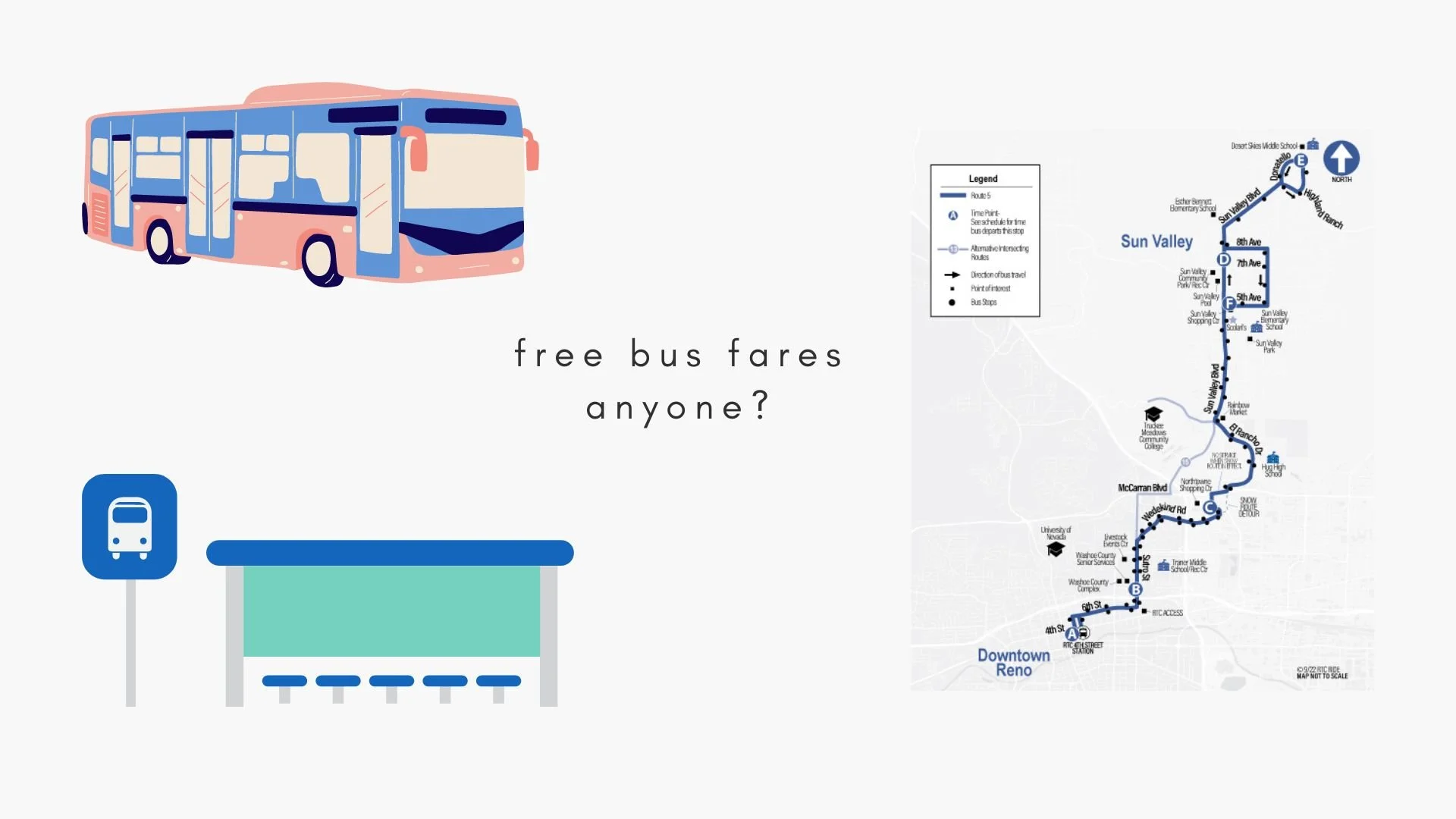Washington, D.C., recently made headlines by passing a zero-fare bus bill.
The new bill in our nation’s capital is eliminating its previous $2 fare for all city buses, adding a dozen 24-hour bus lines and making other service improvements to its public buses.
In 2019, Kansas City, Missouri, with a population similar in size to Washoe County, started its own transit system zero-fare.
Should we follow this so-called zero-fare public transit movement?
Having accessible public transport would boost our economy, go hand in hand with making downtown and Midtown more pedestrian friendly, and allow people who work at UNR, casinos or hospitals to conveniently live along bus lines. Not to mention more people using public transit is guaranteed climate and community friendly.
One D.C. council member said people should think of paying for collective public transit like they think of the fire department, as a public good for everyone.
Some cities like Boston and Denver are taking more timid approaches, but at least there’s an effort. Boston is testing zero-fare on three bus routes, while Denver has introduced temporary fare-free holidays such as “Zero Fare to Vote” on voting days and “Zero Fare for Better Air” during August.
Reno wants to pay for more police officers. Why not give us all free and better buses instead?
